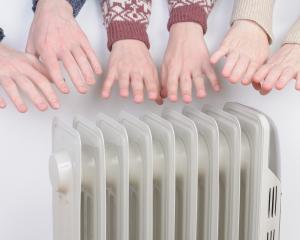
Following the deaths of three people in a boating accident on the Riverton bar last weekend, Maritime New Zealand and Coastguard are urging boaties to think about what could go wrong on the water.
The incident follows a spate of horrific incidents so far this winter, in which seven people have died in three incidents involving recreational craft around New Zealand over the past seven weeks.
Maritime NZ recreational craft principal adviser Matt Wood said as well as the Riverton incident on Saturday, another man died in late July after falling overboard near Whakatāne and three people died after the boat they were in capsized in between the Māhia Peninsula and Gisborne in late June.
On average, 18 people a year died in recreational craft incidents, he said.
"These incidents are nothing short of heartbreaking, and I want to offer my condolences to everyone impacted by them.
"This has been the worst winter I can remember in my near decade at Maritime NZ."
And it could have been a whole lot worse, he said.
"Thanks to Coastguard Riverton volunteers, two people were able to be saved after the fatal capsizing in Southland."
He said another five people were pulled from Manukau Harbour in another boating incident on Saturday, following a co-ordinated effort involving the police Eagle helicopter, volunteers from Coastguard Titirangi and Papakura, and Auckland Airport’s hovercraft.
Coastguard operations head Rob McCaw said it had been a busy winter for Coastguard, volunteers having responded to more than 270 incidents and having rescued 14 people from life-threatening situations.
"Incidents are 7% higher than at the same point last winter.
"Tragedies on the water leave a lasting impact on our volunteers, particularly those in Hawke’s Bay, Gisborne, Whakatāne, Ōpōtiki, Riverton and Bluff, who have demonstrated immense sacrifice, care and professionalism in bringing closure to the whānau and friends of those lost over the past two months."
He said boating had risks all year round, but in winter these were amplified.
"The weather is colder, days shorter, conditions are more unpredictable and the water temperatures can drop to under 10°C.
"If you are thrown from your boat, or it capsizes, it is extremely challenging to survive in bitterly cold conditions, or large swells and strong winds."
He said anyone planning a trip on the water needed to consider all the potential scenarios.
"The recent incidents we have seen over the last few weeks have been all around the country, in varying conditions, and involved different-sized vessels.
"This shows tragedy can occur anywhere, and it doesn’t discriminate.
"When in doubt, do not go out."
Mr Wood said every vessel needed to have at least two forms of communication, such as a cellphone in a waterproof case, a VHF radio, a PLB or EPIRB beacon, and a properly fitted lifejacket for everyone on board.
He also urged skippers to properly check and understand the marine weather forecast.
"We don’t want any more families mourning loved ones," he said.












